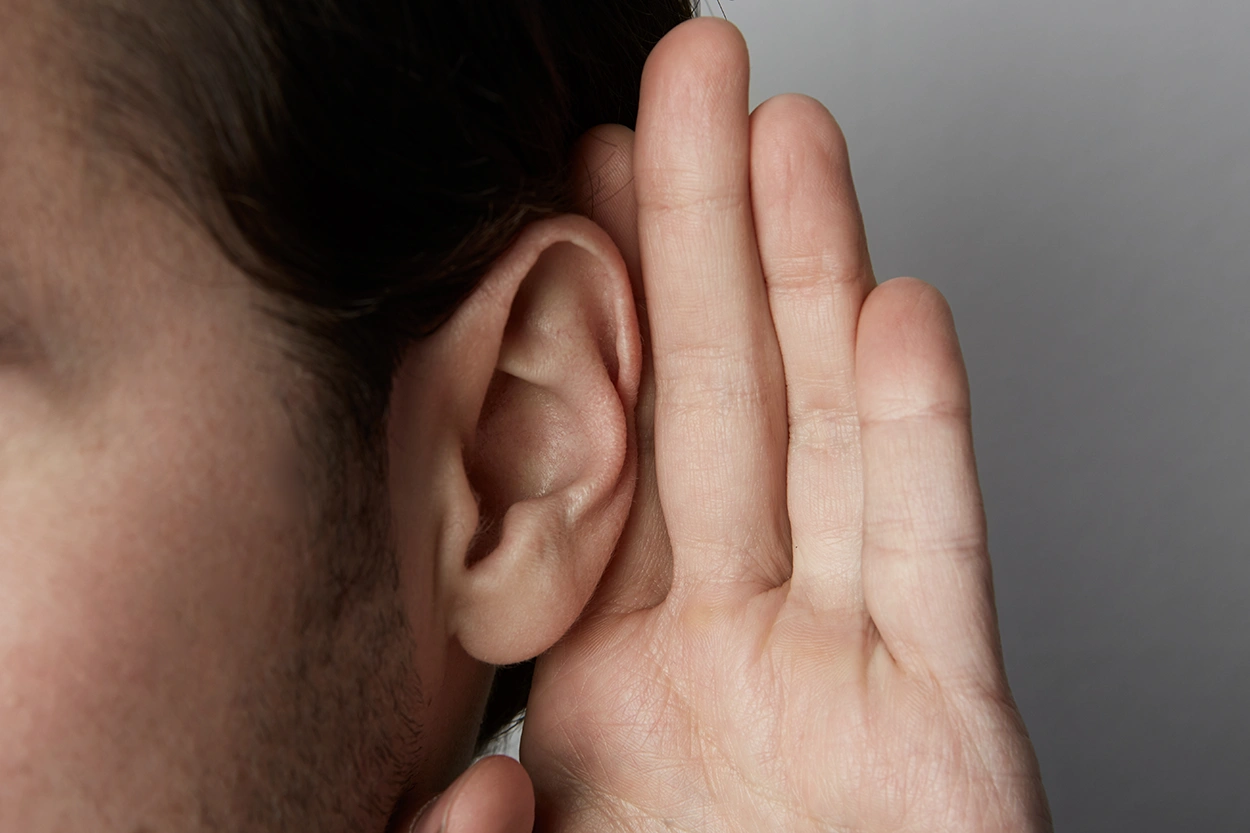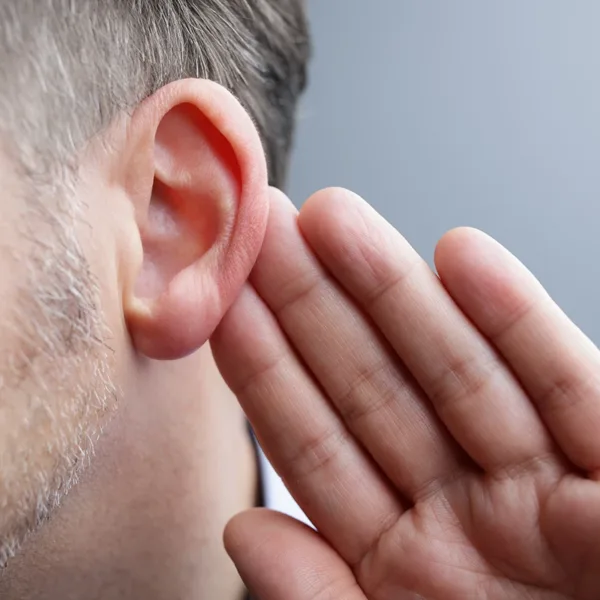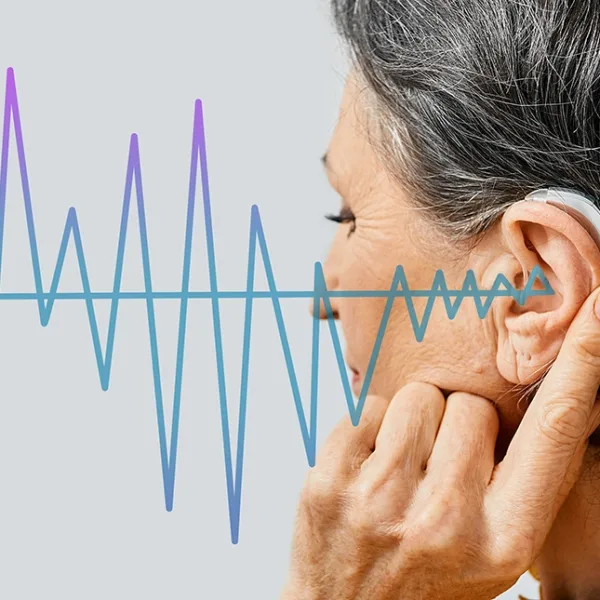
In the United States alone, roughly 28.8 million adults could benefit from using hearing aids1. While they are a highly effective treatment option for many people with hearing loss, do hearing aids work for everyone?
Well, not necessarily. The effectiveness of hearing aids can vary depending on individual circumstances including the type of hearing loss a person has. In this post, we explain the factors that can influence the effectiveness of hearing aids, helping you navigate your options and make informed choices for your hearing loss care.
Hearing Aids for Different Types of Hearing Loss
Hearing loss can be classified into several categories, each with distinct characteristics and implications for treatment. Understanding the different types is essential for determining whether hearing aids are the right solution for your hearing needs:
Conductive Hearing Loss (CHL)
Conductive hearing loss (CHL) occurs when sound is obstructed from fully reaching the inner ear. Common causes of CHL include excessive earwax build-up, fluid in the middle ear due to infection, and damage or malformations to the ear canal, eardrum, or middle ear bones.
Standard hearing aids are generally not an effective treatment option for conductive hearing loss. CHL is often treatable with medical intervention, surgical procedures, or specialized devices like bone conduction hearing aids.
Sensorineural Hearing Loss (SNHL)
Sensorineural hearing loss (SNHL) is the most common type of hearing loss and is caused by damage to the inner ear (cochlea) or the auditory nerve. SNHL can stem from various factors, including aging (presbycusis), noise exposure (noise-induced hearing loss), hereditary/genetic factors, certain medical conditions, and more.
Hearing aids are generally a great treatment option for people with sensorineural hearing loss. However, there are instances where additional factors can limit their effectiveness (which we explore below). In these cases, guidance from a hearing healthcare specialist is essential to finding the best treatment options.
Mixed Hearing Loss
Mixed hearing loss is a combination of conductive and sensorineural hearing loss. This means that both the outer or middle ear and the inner ear or auditory nerve are affected.
Treatment for mixed hearing loss may involve addressing the conductive component with medical or surgical options, while also using hearing aids for the sensorineural aspect.
Hearing Aids for Hearing Loss Severity
There are four clinically labeled degrees of hearing loss: mild, moderate, severe, and profound. The degree of hearing loss severity plays a crucial role in determining how effective hearing aids will be.
For instance, behind-the-ear (BTE) hearing aids tend to offer more power and can treat all degrees of hearing loss severity. However, in-the-ear (ITE) are smaller, and may not be a suitable treatment option for profound degrees of hearing loss severity.
Hearing Loss and Coexisting Health Conditions
Certain health conditions can contribute to hearing loss, and the effectiveness of hearing aids often depends on both the specific illness and individual circumstances. Common conditions that may affect hearing include diabetes, cardiovascular disease, Meniere’s disease, Lyme disease, chronic ear infections, and more.
In some cases, addressing the underlying condition can restore hearing, making hearing aids unnecessary. However, if the condition is chronic, hearing loss may be treatable with prescription hearing aids.
A comprehensive hearing exam is the best way to ensure you receive timely diagnosis and personalized treatment that addresses both your hearing and overall health.
How Do You Know if Hearing Aids Are Right for You?
The only way to determine if hearing aids are right for you is by consulting with a hearing healthcare specialist. They will provide a comprehensive hearing health exam to determine:
- Type of Hearing Loss: A hearing test will identify whether your hearing loss is sensorineural, conductive, or mixed, which is a key factor in determining if hearing aids are appropriate.
- Degree of Hearing Loss: The specialist will measure the severity of your hearing loss to recommend the best hearing aid for your unique needs.
- Physical Ear Exam: A thorough examination of your ears will check for any physical issues that may be affecting your hearing such as earwax buildup, ear infections, or abnormalities.
- Ear Cleaning: If excessive earwax is contributing to your hearing loss, the specialist will provide a gentle ear cleaning during the exam to improve your hearing clarity.
- Your Lifestyle: The hearing specialist will ask about your daily activities such as your work environment, hobbies, social engagements, etc., to determine if you’re at an increased risk for noise-induced hearing loss, and/or recommend hearing aids to best suit your lifestyle.
A comprehensive hearing exam is the only way to determine if hearing aids are the right solution for you. Even if you already have hearing aids but feel like they are no longer effective, a specialist can identify why and help you find the best hearing loss solutions for your unique needs.
Get the Personalized Hearing Loss Care You Deserve at Audibel
While hearing aids may not be suitable in some cases, they are a powerful tool for millions of people with hearing loss. The hearing healthcare specialists at Audibel are here to help you find the best possible hearing loss solutions for your needs. With personalized hearing loss care, you can enjoy better communication every day and a higher quality of life for years to come.
Ready to take control of your hearing health? Find an Audibel clinic near you today.
Resources:
- Quick statistics about hearing, balance, & dizziness. (2024, March 4). NIDCD. https://www.nidcd.nih.gov/health/statistics/quick-statistics-hearing







Have a question or Comment?